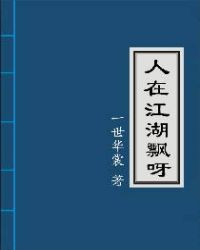LETTER 304
您可以在百度里搜索“The Works of Charles and Mary Lamb — Volume 6 艾草文学(www.321553.xyz)”查找最新章节!
LETTER 304
CHARLES LAMB TO JOHN HOWARD PAYNE
[January, 1823.]
Dear Payne—Your little books are most acceptable. 'Tis a delicate edition. They are gone to the binder's. When they come home I shall have two—the "Camp" and "Patrick's Day"—to read for the first time. I may say three, for I never read the "School for Scandal." "Seen it I have, and in its happier days." With the books Harwood left a truncheon or mathematical instrument, of which we have not yet ascertained the use. It is like a telescope, but unglazed. Or a ruler, but not smooth enough. It opens like a fan, and discovers a frame such as they weave lace upon at Lyons and Chambery. Possibly it is from those parts. I do not value the present the less, for not being quite able to detect its purport. When I can find any one coming your way I have a volume for you, my Elias collected. Tell Poole, his Cockney in the Lon. Mag. tickled me exceedingly. Harwood is to be with us this evening with Fanny, who comes to introduce a literary lady, who wants to see me,—and whose portentous name is Plura, in English "many things." Now, of all God's creatures, I detest letters-affecting, authors-hunting ladies. But Fanny "will have it so." So Miss Many Things and I are to have a conference, of which you shall have the result. I dare say she does not play at whist. Treasurer Robertson, whose coffers are absolutely swelling with pantomimic receipts, called on me yesterday to say he is going to write to you, but if I were also, I might as well say that your last bill is at the Banker's, and will be honored on the instant receipt of the third Piece, which you have stipulated for. If you have any such in readiness, strike while the iron is hot, before the Clown cools. Tell Mrs. Kenney, that the Miss F.H. (or H.F.) Kelly, who has begun so splendidly in Juliet, is the identical little Fanny Kelly who used to play on their green before their great Lying-Inn Lodgings at Bayswater. Her career has stopt short by the injudicious bringing her out in a vile new Tragedy, and for a third character in a stupid old one,—the Earl of Essex. This is Macready's doing, who taught her. Her recitation, &c. (not her voice or person), is masculine. It is so clever, it seemed a male Debut. But cleverness is the bane of Female Tragedy especially. Passions uttered logically, &c. It is bad enough in men-actors. Could you do nothing for little Clara Fisher? Are there no French Pieces with a Child in them? By Pieces I mean here dramas, to prevent male-constructions. Did not the Blue Girl remind you of some of Congreve's women? Angelica or Millamant? To me she was a vision of Genteel Comedy realized. Those kind of people never come to see one. N'import—havn't I Miss Many Things coming? Will you ask Horace Smith to——[The remainder of this letter has been lost.]
[Payne seems to have sent Lamb an edition of Sheridan. "The Camp" and "St. Patrick's Day" are among Sheridan's less known plays.
Poole was writing articles on France in the London Magazine. Lamb refers to "A Cockney's Rural Sports," in the number for December, 1822.
Fanny was Fanny Holcroft. Plura I do not identify.
The new tragedy in which Miss Kelly had to play was probably "The Huguenot," produced December 11, 1822. "The Earl of Essex" was revived December 30, 1822. Macready played in both.
"Cleverness is the bane." See Lamb's little article on "The New Acting" in Vol. I.
The Blue Girl seems to refer to the lady mentioned at the end of the first letter to Payne.
Angelica is in Congreve's "Love for Love"; Millamant in his "Way of the World."] The Works of Charles and Mary Lamb — Volume 6

